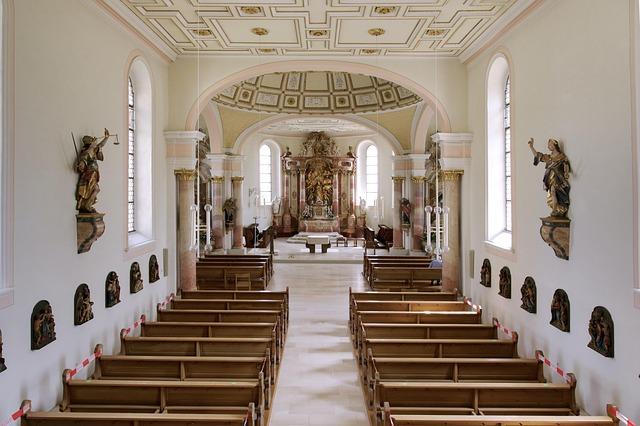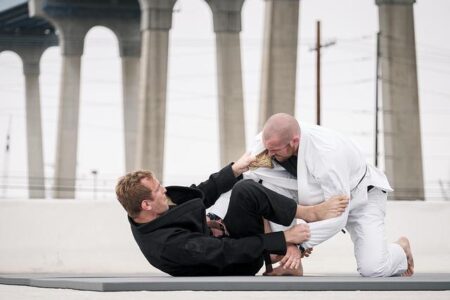Beneil Dariush, the prominent UFC lightweight contender, recently opened up about his decision to share his Christian faith while in Abu Dhabi, shedding light on the risks associated with public religious expression in the region. In a candid interview, Dariush revealed that openly preaching Christianity in public could lead to severe consequences, including violence or even death. His remarks underscore the complex intersection of faith, freedom, and cultural restrictions faced by many in parts of the Middle East, sparking important conversations about religious tolerance and human rights.
Beneil Dariush Discusses Challenges of Openly Practicing Christianity in the Middle East
Beneil Dariush, the mixed martial artist known for his outspoken faith, opened up about the risks associated with practicing Christianity openly in the Middle East. Speaking candidly about his decision to preach in Abu Dhabi, Dariush revealed the harsh realities many Christians face in the region. “If they do that in public, they would be killed,” he explained, highlighting the cultural and legal dangers tied to public expressions of faith in predominantly Muslim countries. His words shed light on the severe restrictions that often force believers into secrecy, underscoring the bravery it takes to live out their spirituality under such conditions.
During his discussion, Dariush also emphasized the importance of understanding local dynamics when navigating religious freedoms abroad. He pointed out several key challenges faced by Christians in Middle Eastern countries:
- Legal prohibitions against public worship outside state-sanctioned venues
- Social ostracism and hostility from surrounding communities
- Risk of imprisonment or worse for converts or outspoken believers
To contextualize, the table below outlines a brief overview of the risks according to different countries in the region:
| Country | Public Worship Allowed? | Consequences of Open Practice |
|---|---|---|
| United Arab Emirates | Yes (in designated places) | Legal but closely monitored |
| Saudi Arabia | No | Severe penalties including imprisonment |
| Iran | Restricted | Arrests and harassment |
Dariush’s testimony not only highlights the courage required to publicly share one’s faith but also calls attention to the urgent need for greater religious tolerance in the Middle East. His experience serves as a stark reminder of the freedoms many take for granted and the persistent struggles of believers worldwide.
Insights and Recommendations for Promoting Religious Freedom in Restrictive Societies
Promoting religious freedom in societies where expression can lead to severe consequences requires a nuanced approach that balances respect for cultural sensitivities with the universal right to belief. Empowering local voices, like Beneil Dariush’s courageous testimony, can play a crucial role in highlighting the risks faced by individuals practicing their faith clandestinely. Encouraging private, safe spaces for worship and dialogue may serve as a stepping stone toward greater acceptance, fostering gradual change without provoking harsh backlash from authorities or society. Additionally, building coalitions with international organizations can amplify pressure for legal reforms that protect religious minorities.
Practical strategies include:
- Supporting underground communities: Provide resources and digital tools to ensure privacy and security in worship.
- Advocating through cultural exchange: Promote interfaith understanding by highlighting shared values and human rights.
- Utilizing diplomatic channels: Encourage governments to engage in dialogue regarding religious freedoms within their jurisdictions.
- Educating youth: Foster tolerance through inclusive education programs that spotlight freedom of belief as a human right.
| Challenge | Recommended Approach | Expected Outcome |
|---|---|---|
| Public persecution risk | Confidential faith communities | Safer expressions of religious identity |
| Cultural stigma | Interfaith dialogue programs | Improved social acceptance |
| Legal restrictions | International advocacy and diplomacy | Progressive policy reform |
The Conclusion
Beneil Dariush’s candid reflections shed light on the complexities faced by individuals expressing their faith in regions where religious freedoms are limited. His decision to openly preach Christianity in Abu Dhabi underscores not only his personal conviction but also highlights broader conversations about tolerance and human rights in the Middle East. As Dariush continues to use his platform within and beyond the MMA world, his story serves as a powerful reminder of the challenges many face in freely practicing their beliefs.








